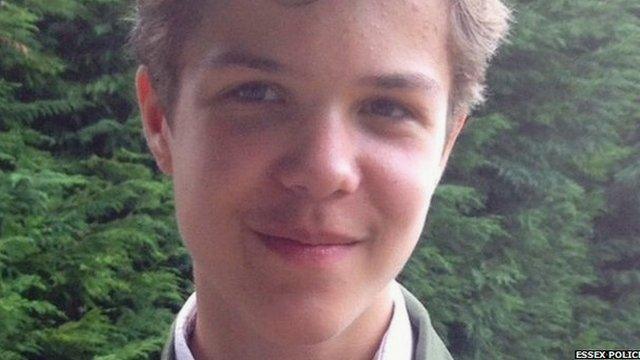Breck Bednar: Snapchat 'delaying murder taunt probe'
- Published
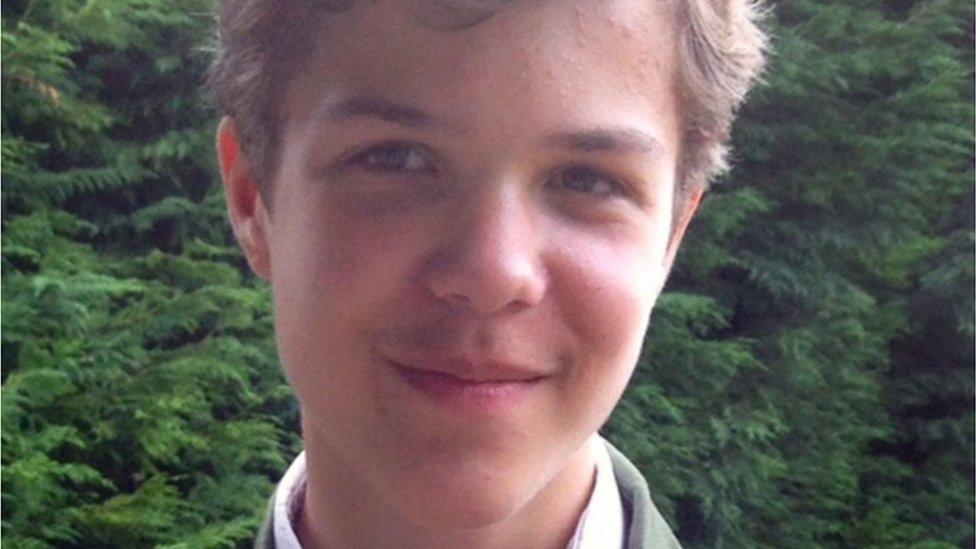
Breck Bednar met his killer online before travelling to meet him
Snapchat has been criticised for a delay in handing over data to police investigating claims a murdered boy's family is being taunted by his killer.
Chloe Bednar alleges Lewis Daynes, who killed her brother Breck in Grays, Essex, has sent sick messages online.
Prime Minister Theresa May described the situation as "completely unacceptable".
The social media firm said it would "welcome any efforts that help to speed up" the international legal process.
Daynes is serving a life sentence for the murder of 14-year-old Breck, from Caterham in Surrey.
The pair met through a gaming website and Daynes lured him to his flat and stabbed him to death in 2014.
Speaking at Prime Minister's Questions, Chris Philp MP said Breck's family had received "very distressing and disturbing" online messages purporting to be from Daynes.
He said the messages "graphically recounted" the murder.
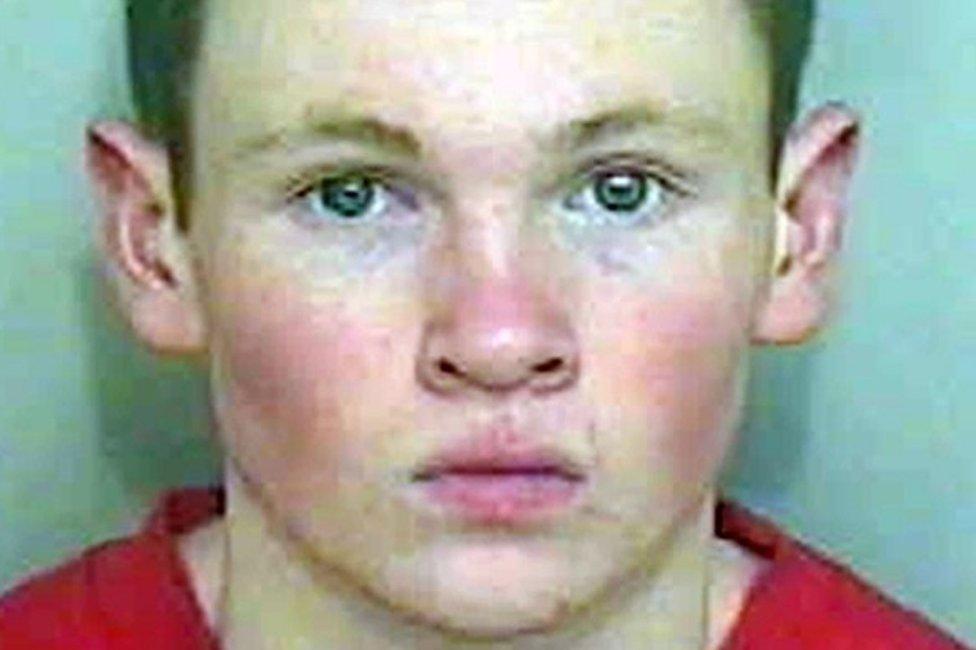
Daynes was sentenced to life with a minimum of 25 years in 2015
Croydon South MP Mr Philp said police had asked Snapchat to provide data that would "help them definitively identify who has been sending these messages".
However, he said the social media firm had referred police to a "mutual legal assistance treaty with the US", that required a "one-year process to get this vital data for their investigation".
Mrs May said the Ministry of Justice was "urgently looking into this issue".
'Upsetting situation'
The prime minister said the government expected to reach an agreement with the US under the new Crime (Overseas Production Orders) Act, which would "give law enforcement agencies the power to obtain electronic data".
Snapchat said: "We understand how upsetting this situation is for the Bednar family.
"We have provided advice on restoring privacy settings and we have also terminated the user account."
It said it aimed to be "as helpful as we can" to police, adding: "We welcome any efforts that help to speed up the Mutual Legal Assistance Treaty process whilst allowing for appropriate judicial oversight and avoiding conflicts of law."
- Published18 February 2019

- Published15 December 2017
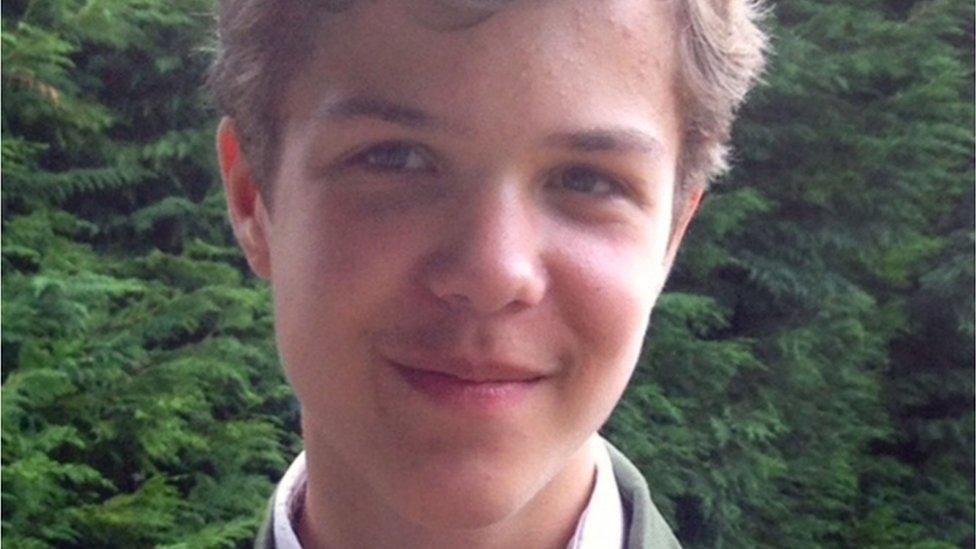
- Published12 December 2017

- Published13 March 2016
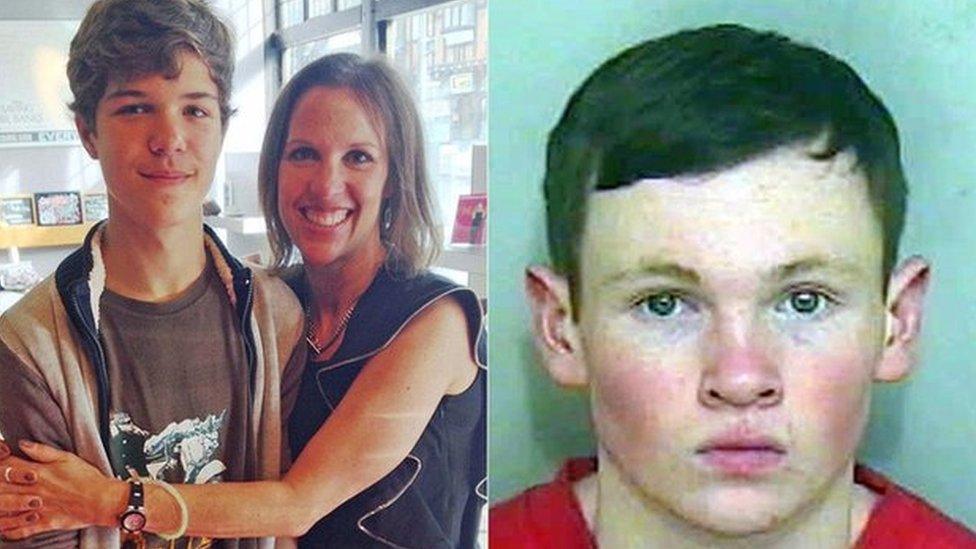
- Published12 January 2015
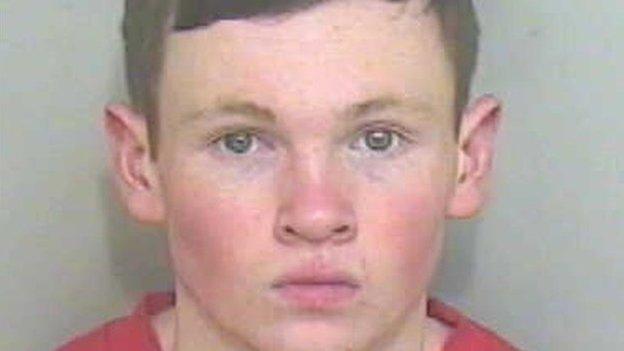
- Published25 November 2014
